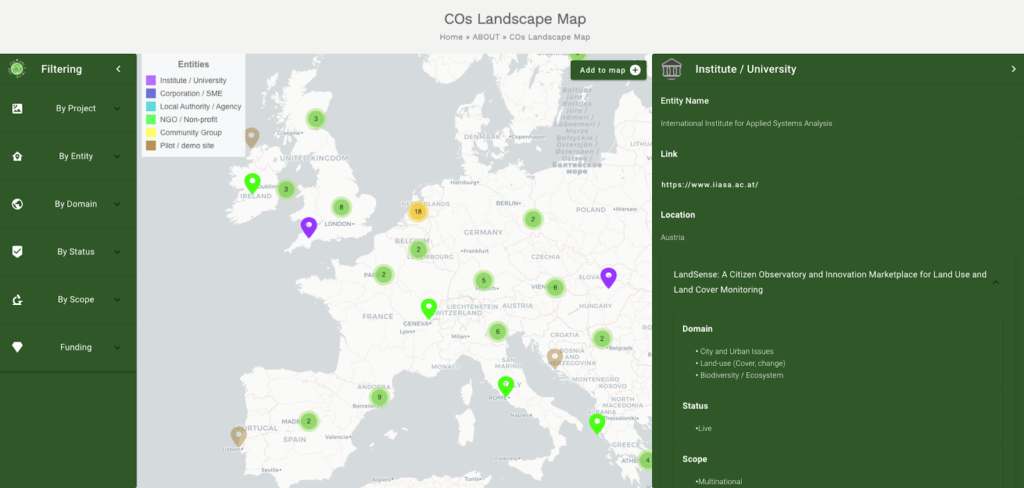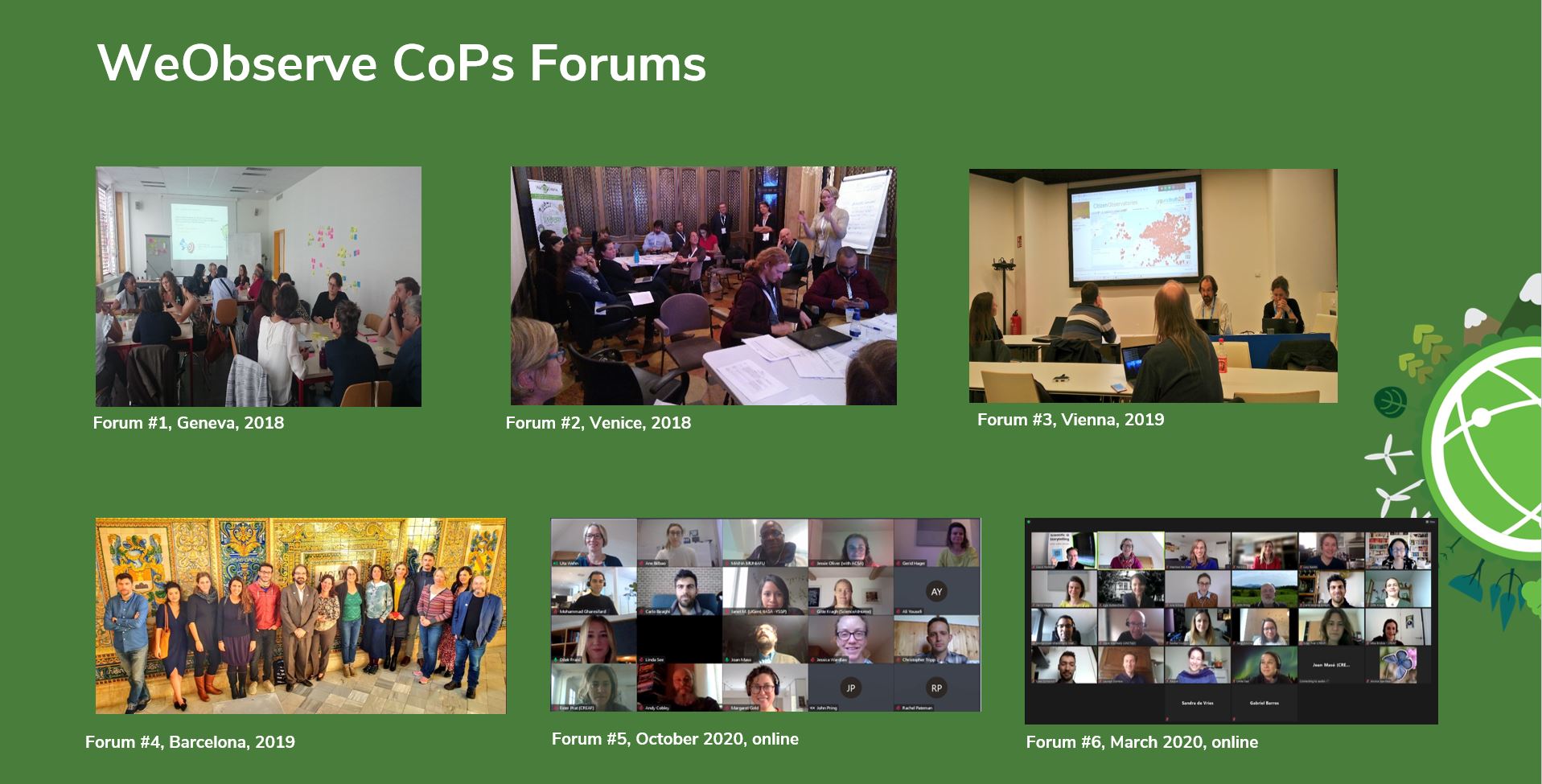Why is it relevant?
Citizen Observatories are typically intended to run long-term, but often they are initially set up for a relatively short time frame without secure follow-up funding. Joining forces with other Citizen Observatories can help address this sustainability challenge.
How can this be done?
Right from the start, let others know what you are working on and find other Citizen Observatories to collaborate with. Find out how to do this in the sections below. Put your own initiative on the WeObserve Citizen Observatory Landscape Map and engage with other Citizen Observatory practitioners via Communities of Practice (CoP) and other working groups. This will help you forge relationships across Citizen Observatories to learn from each other, develop strategies together, and create networks to collaborate on future funding calls to be able to continue your successful activities.
Useful Resources
TOOL: The WeObserve Landscape Map of Citizen Observatories presents a visualisation of Citizen Observatories (and related organisations) across Europe.
COMMUNITIES: The WeObserve CoPs are made up of practitioners, citizen observers, policy makers, scientists and researchers, among others, and aim to consolidate practice-based knowledge of Citizen Observatories, share information and resources, and further develop best practice guidelines and toolkits for Citizen Observatories.
PROJECT REPORT: D2.8 Final WeObserve CoP report.
WORKING GROUPS AND CoPs: There are many other communities dedicated to those interested in Citizen Observatories and citizen science:
You may also be interested in:
I want to ensure sustainability of the Citizen Observatory after the funding period…
…by making project outputs with open access
…by accessing open funding calls
…by moving the infrastructure of the observatory into the cloud
This work by parties of the WeObserve consortium is licensed under a Creative Commons Attribution-ShareAlike 4.0 International License. ![]()


